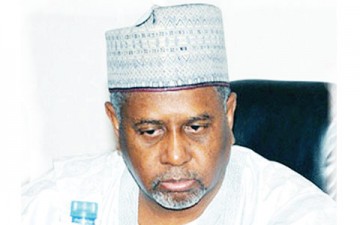Just as I was about to start striking my keyboard to comment on Armsgate, I received a caveat from the Nigerian Senate, which is now preparing an anti-comment law. If they had their way, commentators might be required to first swear an affidavit before posting comments on their phones or tablets. The proposed bill initiated by Ibn Na’Allah received enthusiastic support in the Senate last week: “Where any person through text message, tweets, WhatsApp or through any social media posts any abusive statement knowing same to be false with intent to set the public against any person and group of persons, an institution of government or such other bodies established by law shall be guilty of an offence and, upon conviction, shall be liable to an imprisonment for two years or a fine of N2,000,000.00 or both fine and imprisonment.”
The senators’ anger is directed at the social media, yet they are attacking all media and the right to freedom of expression. In 2016! They should be forgiven: many of them are still learning to use Facebook invented by their grandchildren’s age-mate. A Senate that has not been able to pass the Petroleum Industry Bill in five years or any important legislation in 16 years appears rankled by comments exposing the corrupt practices and filthy lifestyles of especially Abuja politicians. But why would they seek a new law against false reports when anti-defamation laws have not been repealed? They wish to re-introduce anti-sedition law (repealed since 1982) as well as Decree 4 of 1984. But we need not worry about our lawmakers and their bill; it won’t see the light of day. And even if it does, the law can’t be enforced: the instruments for identifying “Gravedigger” or “Sinator” or “Lucifer” on Facebook and Twitter are lacking in Nigeria.
Before the law gets ready, however, let me say something today, with caution though, about the alleged arrest and detention of former alleged national security adviser Sambo Dasuki and others over alleged sharing of $2.1billion (N500billion) meant for alleged anti-terrorism fight. [I presume I have used, and will keep using, “alleged” copiously to shield me from libel and the senators!] Millions of posts on the web (not by the EFCC or the accused) suggest that this money, presumably meant for procurement of rocket launchers, fighter jets, arms and ammunition, was diverted to the 2015 elections.
As a media man myself, I learned, in December, that bullion vans were moving hard currencies from the Central Bank of Nigeria in the dead of night. It was reported also in the social media that the PDP presidential fundraiser yielded over N80billion in one night, while the party announced it was only N21billion. Had the Senate’s bill been passed by then, perhaps many web reporters would have been rotting in jail! Courts and senators hate media trials. To arrive at the “truth”, the reporters must swear an affidavit that they saw bullion vans being moved, list the names of the van drivers and CBN staff that were loading the cash, and state exactly how much money was involved – all these must be done with accuracy and beyond reasonable doubts.
Now we know why Abuja was awash in American dollars between December and March. At party conventions, delegates were paid bribes in dollars. Many of those involved in the campaigns were buying houses in Abuja with dollar cash. A Nigerian was allegedly building a multi-billion-naira mansion in Kaduna GRA. At the same time, “Boko Haram” terrorists were slaying innocent Nigerians in their thousands, burning homes and subjecting millions of people to internal slavery in IDP camps. How blood-stained could money be?
There were other “rumours” about those behind “Boko Haram”. At a time it was alleged that Sani Abacha once alleged that if an act of insurgency lasted beyond 24 hours government was behind it. Then, a former NSA, Andrew Owoye Azazi, hinted that the PDP was Boko Haram. Not long after, he died in a helicopter crash, and the rumour mill was abuzz again: Was it an act of sabotage?
Perhaps, the mystery behind Boko Haram is being solved. We have always known that some security agents allegedly make money by provoking crises. Just like watchmen that allegedly organise kidnapping of their masters or invite armed robbers to homes they are paid to protect.
The Nigerian government aids and abets corruption through security votes that are not accounted for. Diversion of public funds is common in almost all the 774 LGAs and 36 states. Contracts are awarded for non-existent projects. If a LG chairman wanted N10million, he simply directs the treasurer to bring money; it would be retired later as payment for grading five rural roads. A governor could exhaust a month’s N500million security vote by (allegedly) generating a security report of a planned communal conflict.
In the case of the $2.1billion (N500billion), Dasuki might have become the fall guy. But we all know he couldn’t have received N500billion without getting an oral approval from the top. The looters’ undoing was that they did not use the money to work for the victory of the PDP. Otherwise, the party would have “won”. It would have been a matter of giving each of some INEC officials N250million, and each of some security agents N100million. They frittered the money and then lost the election. One INEC REC and his family were burnt to death in Kano after the polls; what happened?
I predict that not much will be recovered from the diverted N500billion after all. What is left will be shared among SANs and certain judges with alleged itchy palms. Last year, in this space, I also predicted that the major threat to the Nigerian economy was not low oil price but security votes. This is just the beginning. In other words, “Boko Haram” has won.
— By ANIEBO NWAMU
#











